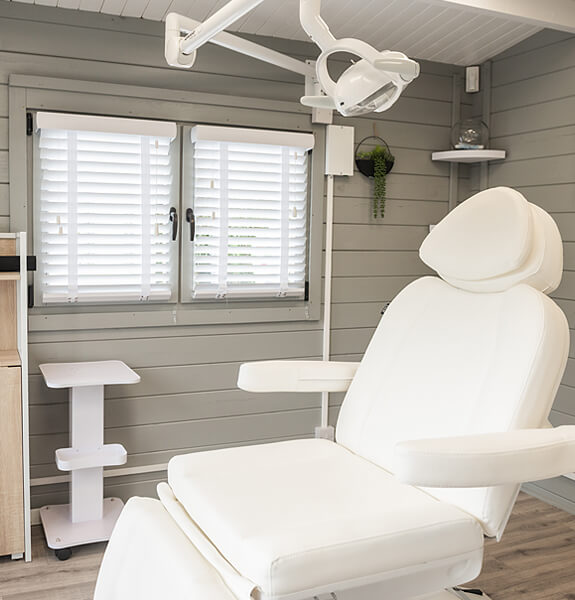Self Help for Emergencies
Here are some tips for those unexpected dental troubles that can occur at the most inconvenient time:
Toothache 
Toothache can be caused by a number of things. Sometimes it is mild and manageable but at other times it can interfere with eating, sleeping and general quality of life. If you get mild toothache that does not go away or severe toothache you will need to see the dentist. In the meantime, and you can take over the counter pain relief as follows;
- If you can take paracetamol, take two 500mg tablets every 6 hours
- If paracetamol isn’t enough and you can take ibuprofen, you can take these as well as paracetamol (with food), the dose is two 200mg tablets every 8 hours.
Please note these are adult doses and should not be exceeded.
Lost Filling or Broken Tooth
If you lose a filling or break off part of a tooth you will need to get it treated but in the meantime;
- keep it as clean as you can
- try to keep your tongue from wandering over to the area as it could be rough and make your tongue sore
- avoid getting hot or cold food on the area as it might be very sensitive
- try to eat on the other side until it has been treated
- if it is painful, and you can take over the counter pain relief such as paracetamol, take two 500mg tablets every 6 hours
- If paracetamol isn’t enough and you can take ibuprofen, you can take these as well as paracetamol (with food), the dose is two 200mg tablets every 8 hours.
Please note these are adult doses and should not be exceeded.
Painful Swelling
If you have a painful lump or bump this will need to be seen by the dentist. In the meantime;
- You may be more comfortable with your head raised more than usual when you sleep
- If you can take paracetamol, take two 500mg tablets every 6 hours
- If paracetamol isn’t enough and you can take ibuprofen, you can take these as well as paracetamol (with food), two 200mg tablets every 8 hours.
Please note these are adult doses and should not be exceeded.
- See the dentist as soon as you can as you might need antibiotics.
- If the swelling increases, or if you have a fever with it go straight to either a medical Walk-In Centre or your local Accident & Emergency Department.
Accidents and Broken Teeth or Teeth Knocked Out
If you or someone you are with has an accident that causes damage to their teeth or mouth go to the nearest Accident & Emergency Department.
If an adult tooth is knocked out speedy treatment is essential for the best outcome. If you act quickly you might be able to save the tooth!
- Keep the casualty calm
- Pick up the tooth by the crown – this is the white bit that is normally seen in the mouth
- Do not touch or wipe the roots is this will damage tiny structures on the root surface
- If the tooth is dirty, wash it briefly (10 seconds) under cold running water then immediately push the tooth back into the hole it came out from. Look at the teeth on the other side of the mouth to check you have it the right way around. Try to encourage the casualty or their parent (if a child) to replant the tooth themselves. Get the casualty to bite on a handkerchief to hold it in position.
- If you don’t feel able to, or it is not possible to, put the tooth back, place the tooth in some milk in a container. The tooth can also be transported in the mouth, keeping it between the back teeth and the inside of the cheek. If the casualty is distressed and/or very young, they could swallow the tooth therefore get the casualty to spit in a container and place the tooth in the container of spit. Do not store the tooth in water.
- Seek emergency dental treatment immediately whether the tooth has been put back or not. Out of normal surgery hours go to the nearest Accident & Emergency Department without delay. The casualty should be checked over for other injury, they may need antibiotics and the tooth may need to be splinted for a while to help to hold it in.
- If baby teeth are knocked out do not put them back in as you could damage the developing adult tooth.
Uncomfortable Wobbly Milk Tooth
Milk teeth can be sore when they get loose and the underside of them can become sharp as the roots dissolve. It might help to;
- Encourage the child to gently wobble the tooth if it’s not too painful
- Eat soft food and try to eat on the other side of the mouth
- Teething gel or Bonjela can help to numb the gum before a meal if eating becomes a problem
- Ensure the child still has plenty of fluids even if they’re not eating much
- See the dentist or dental therapist if the above tips don’t provide enough relief.
Orthodontic Treatment Problems
- It is normal for teeth and jaws to ache during orthodontic treatment as the teeth are being moved. If you need pain relief for this, and you can take over the counter pain relief such as paracetamol, take two 500mg tablets every 6 hours
- If paracetamol isn’t enough and you can take ibuprofen, you can take these as well as paracetamol (with food), the dose is two 200mg tablets every 8 hours.
Please note these are adult doses and should not be exceeded.
- If your fixed brace is rubbing, use the wax you’ve been given over the bracket or wire that is causing the problem. Wax sticks best to dry surfaces so try to dry the area first.
- Difflam Oral Rinse is very good at reducing pain and inflammation in the mouth. This is available over the counter from chemists – follow the instructions on the bottle.
- If you have a loose bracket or have lost one completely, don’t panic! This can be sorted out at your next adjustment appointment.
Lost Crown or Bridge
If you lose a crown or bridge keep it safe, try to avoid eating on the area and book an appointment for it to be put back or replaced. In the meantime keep the area as clean as you can.
Sensitive Teeth
Toothpaste for sensitive teeth can work really well. To get the best out of it;
- Use it as your toothpaste morning and night
- After brushing, spit out the excess paste but don’t rinse it off your teeth
- Use your finger to rub some of the paste onto any particularly sensitive areas after brushing at bedtime and leave it there all night.
Dental Studio patients with emergency dental problems can phone one of these out-of-hours number when the surgery is closed:
Private Patients & Plan patients phone 01206 845 891 for the dentist on the emergency rota. (Emergency cover is shared between a number of practices.)
NHS Patients phone NHS 111


